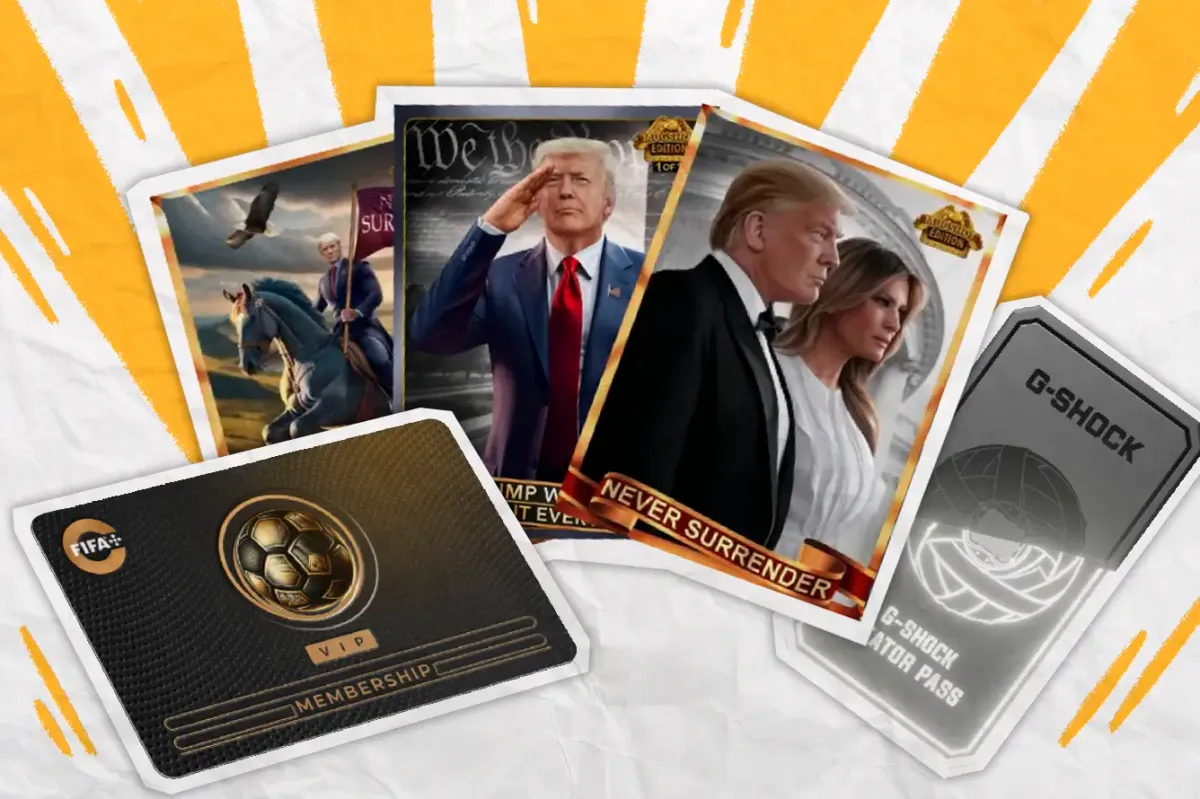
Only a few short months after the digital collectibles market was deemed worthless by mainstream media, prices are rising, user activity is surging, and new collections are popping up on a daily basis.
Unlike the previous NFT bubble, when JPEGs of 8-bit characters sold for astronomical prices, this time around the market seems to be following a different direction. Digital art projects are putting utility first to give buyers something with purpose; whether collectibles have historical relevance, grant exclusive rights within a community, give access to unique experiences, or have clear artistic merit.
One factor influencing this shift in the value proposition of NFTs is the ever more pronounced influx of mainstream culture into Web3; just this week, three huge popular culture icons have launched on-chain collections.
U.S. presidential candidate Donald Trump has decided to capitalize on the 'historic' moment of his recent arrest with the launch of 'Trump Digital Trading Cards: Mugshot Edition', his third venture into the non-fungible token space. Depending on the number of NFTs bought, buyers can enjoy perks such as a VIP invitation to a gala dinner with the 77-year-old billionaire and a piece of the suit he wore when the mugshot was taken. In a promotional video, Trump tells buyers that owning one of the NFTs is owning an “exclusive piece of American history.”
Meanwhile FIFA, the international governing body of association football, has launched a limited collection of 1,000 NFTs in collaboration with blockchain firm Modex, which will give the buyers of the first 100 collectibles a chance to win tickets to the FIFA 2026 World Cup final. The digital assets signal a new revenue source for the organization, and potentially bring a new generation of more engaged fans. As CEO of Modex Francesco Abbate announced, “digital collectibles increase the ways in which fans can interact with their favourite players, teams, and the game they love.”
And Japanese electronics giant Casio has launched 'Virtual G-SHOCK', a collection of 2,000 NFTs showcasing two different versions of their iconic 1983 shock-resistant watch. Devoted watch enthusiasts who purchase one of these collectibles will be able to access exclusive behind-the-scenes experiences with Casio and participate in discussions with designers.
Also this week, Line Next, a South Korean joint venture between SoftBank and Naver, secured $140 million of funding from Crescendo Equity Partners, which the company says is the largest investment in blockchain and Web3 of the year in the Asian continent.
The investment comes after Line Next has spent the past year working with K-pop artists and the music industry to create sentimental and culturally valuable NFTs for fans of the cultural phenomenon, which included developing their own K-pop NFT platform.
According to data firm DappRadar, the worst times for the digital collectibles market seems to be over, with trading volume increasing by nearly $1 billion in November and the average value of NFT transactions increasing by 114%. While speculation is intrinsic to such a risky market, this time around the adoption by mainstream culture means that the value NFTs have to holders could be sustained even if prices fall again.

